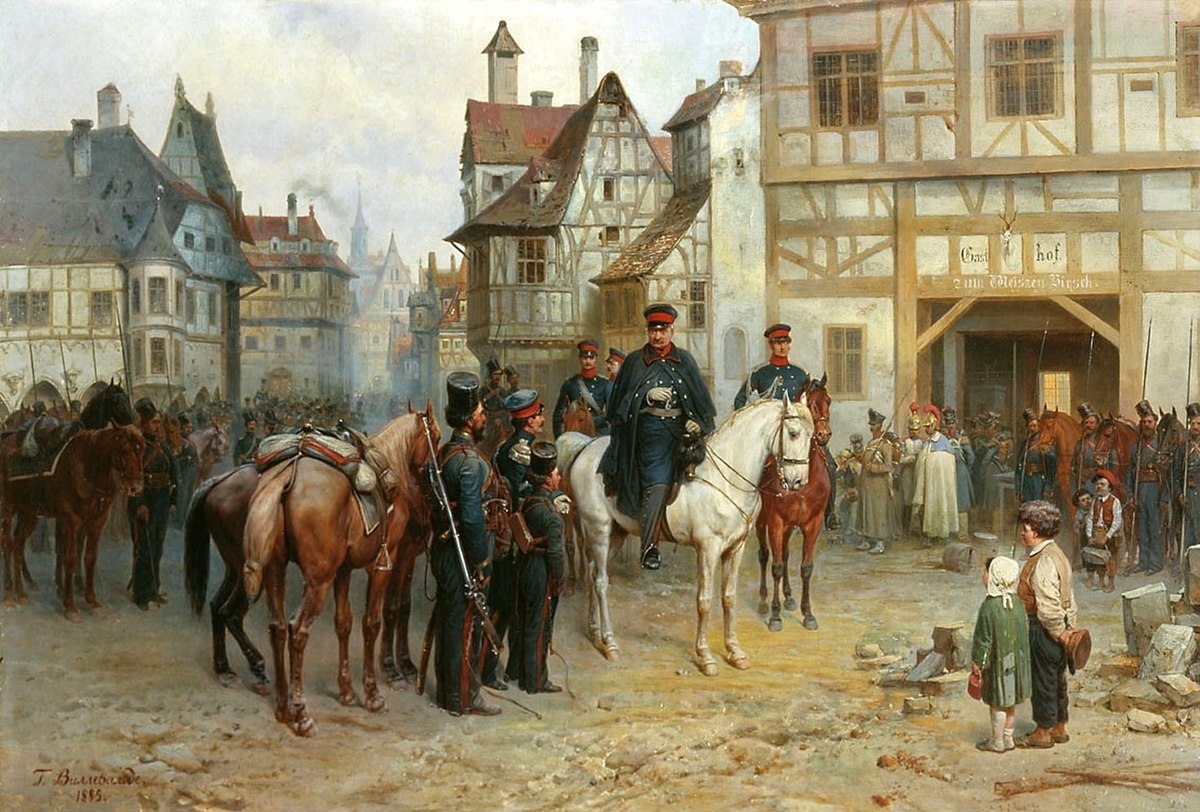
Spring campaign
GermanyThe German campaign was fought in 1813. Members of the Sixth Coalition, including the German states of Austria and Prussia, plus Russia and Sweden, fought a series of battles in Germany against the French Emperor Napoleon, his marshals, and the armies of the Confederation of the Rhine - an alliance of most of the other German states - which ended the domination of the First French Empire.
The spring campaign between France and the Sixth Coalition ended inconclusively with a summer truce (Truce of Pläswitz). Via the Trachenberg Plan, developed during a period of ceasefire in the summer of 1813, the ministers of Prussia, Russia, and Sweden agreed to pursue a single allied strategy against Napoleon. Following the end of the ceasefire, Austria eventually sided with the coalition, thwarting Napoleon's hopes of reaching separate agreements with Austria and Russia. The coalition now had a clear numerical superiority, which they eventually brought to bear on Napoleon's main forces, despite earlier setbacks such as the Battle of Dresden. The high point of allied strategy was the Battle of Leipzig in October 1813, which ended in a decisive defeat for Napoleon. The Confederation of the Rhine was dissolved following the battle with many of its former member states joining the coalition, breaking Napoleon's hold over Germany.
